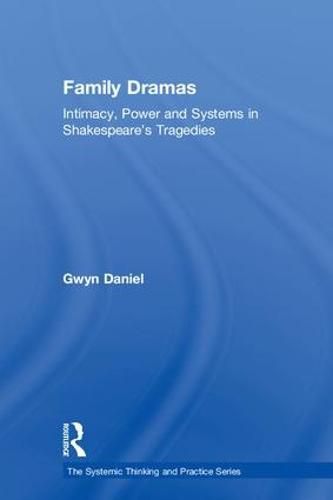Readings Newsletter
Become a Readings Member to make your shopping experience even easier.
Sign in or sign up for free!
You’re not far away from qualifying for FREE standard shipping within Australia
You’ve qualified for FREE standard shipping within Australia
The cart is loading…






Most of Shakespeare’s tragedies have a family drama at their heart. This book brings these relationships to life, offering a radical new perspective on the tragic heroes and their dilemmas. Family Dramas: Intimacy, Power and Systems in Shakespeare’s Tragedies focusses on the interactions and dialogues between people on stage, linking their intimate emotional worlds to wider social and political contexts.
Since family relationships absorb and enact social ideologies, their conflicts often expose the conflicts that all ideologies contain. The complexities, contradictions and ambiguities of Shakespeare’s portrayals of individuals and their relationships are brought to life, while wider power structures and social discourses are shown to reach into the heart of intimate relationships and personal identity. Surveying relevant literature from Shakespeare studies, the book introduces the ideas behind the family systems approach to literary criticism. Explorations of gender relationships feature particularly strongly in the analysis since it is within gender that intimacy and power most compellingly intersect and frequently collide.
For Shakespeare lovers and psychotherapists alike, this application of systemic theory opens a new perspective on familiar literary territory.
$9.00 standard shipping within Australia
FREE standard shipping within Australia for orders over $100.00
Express & International shipping calculated at checkout
Most of Shakespeare’s tragedies have a family drama at their heart. This book brings these relationships to life, offering a radical new perspective on the tragic heroes and their dilemmas. Family Dramas: Intimacy, Power and Systems in Shakespeare’s Tragedies focusses on the interactions and dialogues between people on stage, linking their intimate emotional worlds to wider social and political contexts.
Since family relationships absorb and enact social ideologies, their conflicts often expose the conflicts that all ideologies contain. The complexities, contradictions and ambiguities of Shakespeare’s portrayals of individuals and their relationships are brought to life, while wider power structures and social discourses are shown to reach into the heart of intimate relationships and personal identity. Surveying relevant literature from Shakespeare studies, the book introduces the ideas behind the family systems approach to literary criticism. Explorations of gender relationships feature particularly strongly in the analysis since it is within gender that intimacy and power most compellingly intersect and frequently collide.
For Shakespeare lovers and psychotherapists alike, this application of systemic theory opens a new perspective on familiar literary territory.